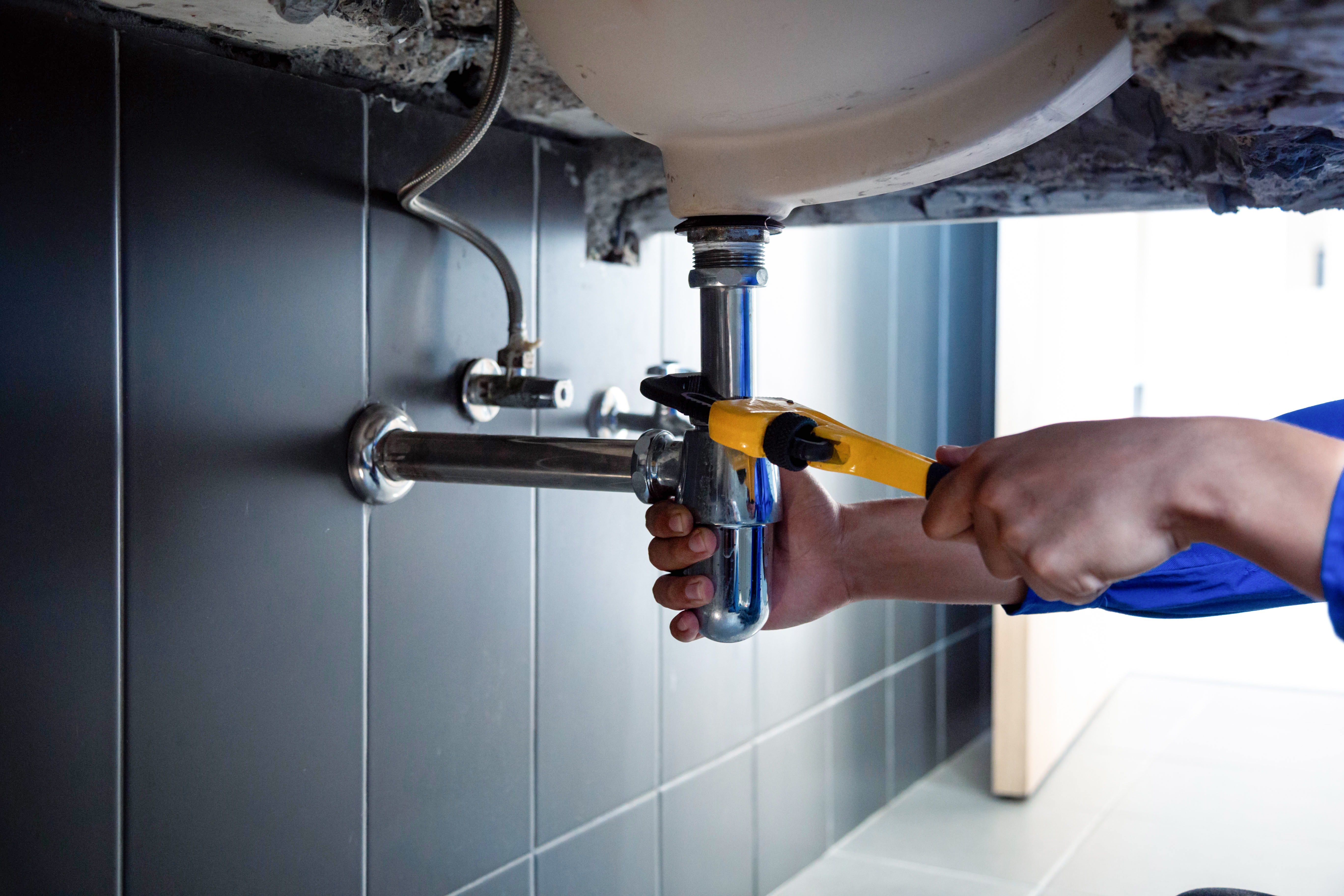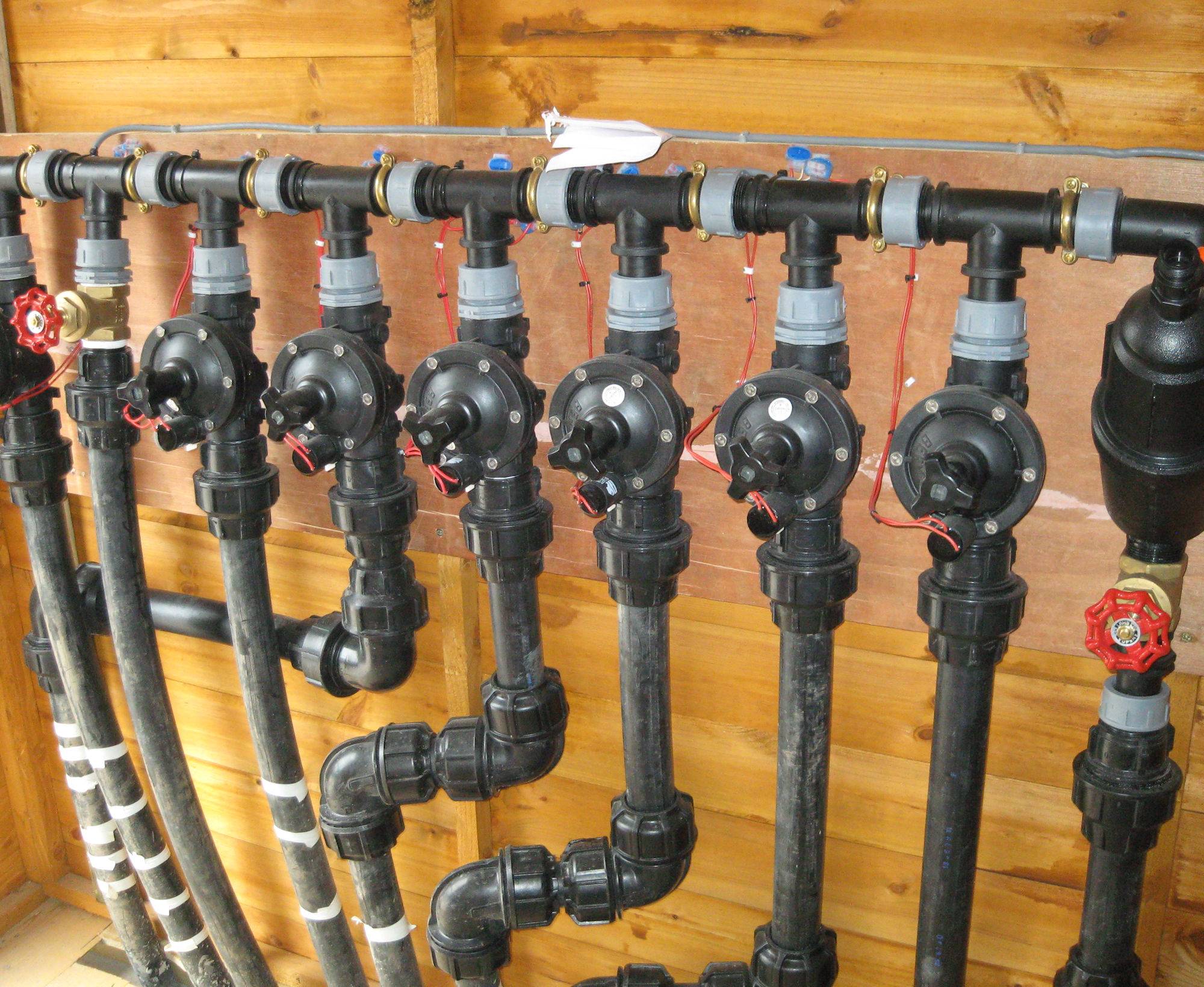Just about everyone maintains their personal piece of advice when it comes to Understanding Water Hammer And How To Stop It.

Introduction
Have you ever switched off a faucet and heard a loud bang or knocking audio coming from your pipes? That upsetting sound, frequently referred to as a sudden thud or clunk, is called water hammer. It's not just an annoying peculiarity of older homes-- water hammer can happen anywhere, and if left untreated, it can cause more substantial plumbing problems. In this write-up, we'll debunk water hammer, explore its causes, and go over sensible methods to deal with and prevent it. Consider it as your ultimate overview to subjugating those rowdy pipelines once and for all.
What is Water Hammer?
Water hammer is a shockwave of stress that happens within your pipelines when water flow quits or alters instructions quickly. Imagine a group of runners running down a slim hallway, just to have a door slam shut at the end. The abrupt stop triggers a domino effect, resulting in a crash of bodies. In your pipes system, water imitates those joggers, and when it's forced to quit unexpectedly, it develops stress waves that travel with the pipes.
The Science Behind Water Hammer
Water hammer is basically concerning kinetic energy. When water moves with pipelines, it carries energy. If something interrupts that activity-- like a valve closing too swiftly-- this momentum changes into a stress rise. Pipelines, fittings, and shutoffs experience this spike in pressure, frequently leading to that banging sound you dread.
Typical Reasons For Water Hammer
Understanding the root causes of water hammer is the first step to resolving it.
Abrupt Shutoff Closure
Quickly shutting off a faucet or appliance can produce an abrupt water flow stop. Dishwashing machines and washing makers, which have automatic valves, are usually culprits in producing these unexpected quits.
Improper Pipeline Sizing
Pipes that are as well small for the quantity of water moving through them can raise the possibility of water hammer. Limited area means greater speed, and greater speed means more powerful pressure rises.
High Water Stress
Too much water pressure not only drainages and money yet likewise intensifies the effects of water hammer. The even more force behind the circulation, the more challenging it strikes when forced to stop.
Why is Water Hammer an Issue?
You might question, "Is water hammer just a noise issue?" It's more than that. While the sound can be annoying, the actual problem exists underneath the surface.
Noisy Pipeline and Home Disturbances
The most apparent problem is the noise. Hearing clunks and bangs every time you do laundry or run the dish washer can interrupt the peace in your home. It could not seem like a big deal initially, however gradually, it can endure your nerves.
Prospective Damages to Plumbing System
Water hammer puts anxiety on shutoffs, joints, and fittings. Repetitive pressure rises can damage connections, trigger leakages, or perhaps result in pipe bursts-- a pricey and bothersome situation nobody wishes to deal with.
Long-Term Damage
With time, relentless water hammer can lead to more frequent repair work, premature wear on components, and a reduced life-span for your pipes system. Think about it as minor tension building up into a bigger concern.
Identifying Water Hammer in Your Home
Before you can fix a trouble, you require to confirm it exists. So, exactly how do you know if you're managing water hammer?
Dead Giveaways and Seems
Listen for knocking or battering sounds when switching off faucets or running devices. If the sound seems to come from within the walls, there's a great chance water hammer is responsible.
Conducting a Basic Inspection
Attempt transforming taps on and off at various rates. If you discover the sound only occurs with specific fixtures or at particular times, you've gathered hints concerning where and when water hammer is happening.
Short-Term Fixes to Manage Water Hammer
If water hammer is driving you up the wall, there are instant actions you can take.
Readjusting Water Stress
If your home's water stress is established expensive, take into consideration mounting a stress regulatory authority or readjusting the existing one. Reducing the pressure can decrease the intensity of those shockwaves.
Securing Loosened Pipelines
Pipes that aren't correctly secured can amplify water hammer noises. Adding pipeline bands or supporting products can assist stabilize them and prevent them from rattling against surface areas.
Making Use Of Air Chambers or Arrestors
Air chambers are easy gadgets that catch a pocket of air in an upright pipeline. This air serves as a cushion, taking in the stress rise. If you do not have them, mounting water hammer arrestors can attain a similar result.
Long-Term Solutions and Upgrades
If you're trying to find even more permanent repairs, it could be time to think about some upgrades.
Setting Up Water Hammer Arrestors
These tools, designed particularly to respond to water hammer, can be positioned near components or devices. They contain a piston and chamber that absorb pressure changes before they spread throughout your system.
Adding Expansion Tanks
An expansion tank connected to your water heater can aid minimize stress fluctuations triggered by thermal expansion. By providing water a place to go when heated up, you decrease stress on pipes.
Updating Pipeline Materials
If you're planning improvements or handling an older home, updating to more flexible piping products, like PEX, can help in reducing the danger of water hammer. These products can take in shock better than rigid pipelines.
DIY vs. Expert Assistance
Some homeowners enjoy an excellent do it yourself challenge, while others choose to leave pipes problems to the pros.
Identifying Your Convenience Degree
If you come in handy, you could be able to take care of fundamental fixes like installing arrestors or readjusting pressure. Yet if you're unsure or if the problem continues, there's no pity in seeking specialist aid.
When to Call a Plumber
If your attempts at taking care of water hammer fall short or if you believe surprise concerns within your wall surfaces, a qualified plumber can diagnose the problem precisely and recommend enduring options.
Protecting Against Water Hammer from the beginning
The very best method to manage water hammer is to stop it prior to it starts.
Creating a Correct Plumbing Format
If you're developing a new home or going through major renovations, get in touch with a plumbing technician about creating a layout that reduces sudden water circulation changes and includes appropriate shock-absorbing components.
Normal Maintenance Checks
Just like your cars and truck requires regular solution, so does your plumbing system. Regular checks for leaks, pressure modifications, and odd noises can catch problems early and protect against water hammer from holding.
Prices and Considerations
Investing in protecting against or dealing with water hammer can conserve you cash over time.
Approximating Expenses
The price differs depending upon the extent of the problem and the selected remedy. Basic fixes like adding arrestors or pipe supports may be relatively economical, while more comprehensive upgrades could cost even more.
Balancing Prices with Benefits
Bear in mind, the alternative-- pipe damages, leaks, and continuous aggravation-- can be much more pricey in the long run. Think about these solutions as a financial investment in comfort and home worth.
Verdict
Water hammer isn't simply an aggravating audio; it's a signal that your pipes system needs attention. By recognizing what triggers it, taking prompt action, and purchasing long-term options, you can guarantee your pipes remain calm and silent. Whether you choose a basic DIY strategy or call in an expert, dealing with water hammer is a step toward a more peaceful and dependable home.
Understanding Water Hammer: Causes, Effects, and Effective Solutions
Water hammer is a common plumbing issue that often goes unnoticed until it becomes a significant problem. If you've ever heard a loud banging noise when you turn off a faucet or noticed your pipes making strange sounds, you may be experiencing water hammer. In this blog post, we will delve into what water hammer is, its causes, effects, and most importantly, how to prevent and stop it from wreaking havoc on your plumbing system.
What is Water Hammer?
Water hammer, also known as hydraulic shock, is a phenomenon that occurs when a sudden change in the flow of water within a plumbing system results in pressure fluctuations and shockwaves. This can lead to loud banging or knocking noises in your pipes, and over time, it can cause damage to pipes, joints, and fixtures.
Causes of Water Hammer
Quick Valve Closures: One of the primary causes of water hammer is the abrupt closing of valves, such as faucets, washing machines, or dishwashers. When water flow is suddenly stopped, the momentum of the flowing water creates pressure waves that travel through the pipes, causing the banging noise. High Water Velocity: Water traveling at high speeds through pipes can exacerbate water hammer. This is often the case in larger plumbing systems or systems with oversized pipes that allow water to flow too quickly. Long Pipe Lengths: Longer pipe lengths provide more room for pressure fluctuations to develop and intensify. The longer the distance for the pressure waves to travel, the more significant the water hammer effect can become. Effects of Water Hammer
Noise Pollution: The most obvious effect of water hammer is the loud banging or knocking noise that can disturb your household. These noises are not only irritating but can also signal potential damage to your plumbing system. Pipe Damage: Over time, the repeated stress from water hammer can weaken pipes and joints, leading to leaks, cracks, and even burst pipes. This can result in costly repairs and water damage to your property. Appliance Wear and Tear: Appliances like washing machines and dishwashers can suffer from accelerated wear and tear due to water hammer, leading to a shorter lifespan and more frequent breakdowns. Preventing and Mitigating Water Hammer
Install Water Hammer Arrestors: Water hammer arrestors are devices that absorb the shockwaves caused by water hammer, preventing them from traveling through the pipes and causing noise and damage. These can be installed at specific points in your plumbing system to effectively mitigate the issue. Adjust Water Pressure: High water pressure can contribute to water hammer. Consider installing a pressure reducing valve (PRV) to regulate the water pressure in your plumbing system and reduce the risk of water hammer. Slow Valve Closure: Whenever possible, avoid abruptly shutting off water valves. Instead, close valves gradually to reduce the momentum of the water flow and minimize pressure fluctuations. Install Air Chambers: Air chambers are vertical sections of pipes that contain air, which acts as a cushion to absorb the shockwaves created by water hammer. Regular maintenance is essential to ensure the air chambers remain effective.

I recently found that entry on How to Fix Water Hammer when doing a lookup on the search engines. Enjoyed reading our blog posting? Please share it. Help other people find it. Thanks so much for your time spent reading it.
Call Today